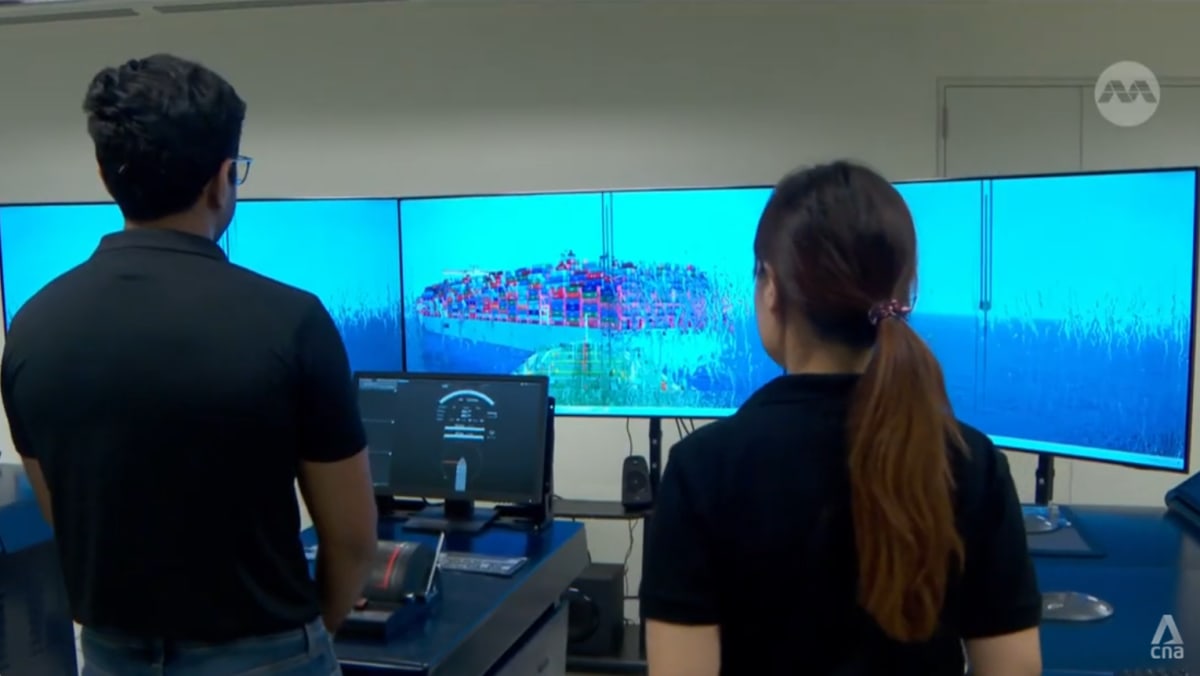SUTD said this hands-on approach is essential for effective learning.
Professor Zhou Jianying, director of SUTD’s iTrust Centre for Research in Cyber Security, said the MariOT facility provides a realistic environment for students to learn how to detect and defend such attacks.
“That will be especially important for those students if they want to work in the maritime industry as their future career,” said Prof Zhou.
CYBERSECURITY CHALLENGES IN DIGITALISATION
With cyberthreats getting more advanced as the industry embraces digitalisation, the MPA highlighted the importance of being prepared.
Giving workers such a venue for the hands-on experience they need to tackle these growing challenges head-on is also valuable, the statutory board said.
MPA’s Chief Information Security Officer Ong Chin Beng said that ships are increasingly being built with advanced digital technologies, like dual-fuel capabilities and more connected Internet of Things (IOT) systems.
These innovations are good, they kind of support the shift of the maritime industry into sustainability and digitalisation,” he added.
“However, this also increases cyber risk, and there lies the importance for us to train the seafarers to be able to first identify cyberthreats and then respond to it appropriately.”
Ransomware continues to be the main threat to shipping companies, affecting operations and delaying delivery of goods to customers, said Mr Ong.
With 80 per cent of all goods traded worldwide transferred through sea lanes, any disruption affects supply chains, he added.
FUTURE-PROOFING MARITIME HUB
SUTD, in partnership with MPA, will host the inaugural MariOT cybersecurity training exercise this year on Thursday (Mar 27) and Friday, marking an important step in strengthening the industry’s readiness against cyberthreats.
The MPA and its partners will continue to expand MariOT’s capabilities and strengthen the development of global cybersecurity standards.
Over the next three years, more than 300 students and professionals, including ship crew, cybersecurity professionals and port operators are expected to gain invaluable experience from the training, according to the MPA.
Senior Minister State for Transport Amy Khor said decarbonisation, digitalisation and manpower development are the bedrock of the maritime sector’s transformation.
“Future-proofing the workforce goes beyond just upskilling; in many cases, it requires strong tripartite collaboration between the unions, industry, and government to reskill our workers to navigate the green and digital transition,” she said during the Singapore Maritime Week on Tuesday.
“By investing in our workforce, we can strengthen industry resilience and future-proof maritime operations, securing Singapore’s position as a trusted, technology-driven global maritime hub.”
